analysis Asia
As Cabinet vacancies in Malaysia pile up, reshuffle seen as unavoidable
Analysts believe that the upcoming Cabinet reshuffle will be a political balancing act for Prime Minister Anwar Ibrahim, rather than a genuine crisis threatening the government's stability.
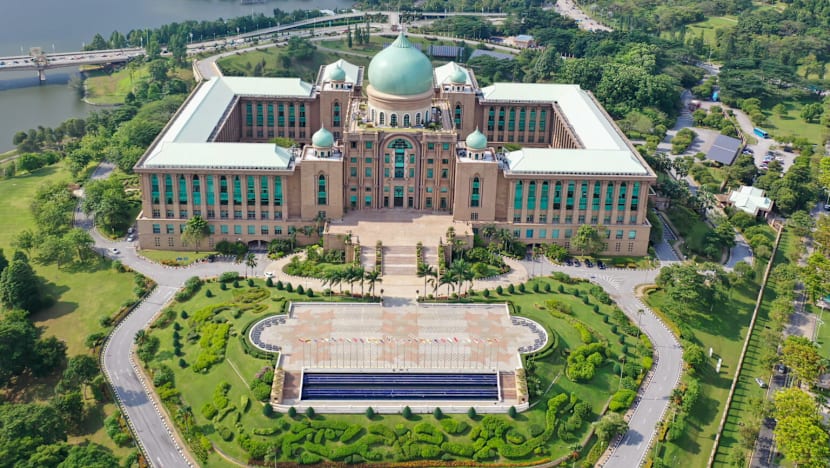
Perdana Putra in Putrajaya is the official complex that houses the Prime Minister's Office (PMO) where Cabinet meetings are usually held. (Photo: PMO website)

This audio is generated by an AI tool.
KUALA LUMPUR: The likelihood of a Cabinet reshuffle in Malaysia has increased in recent weeks, driven by the need to fill at least four confirmed vacancies stemming from expiring senatorial terms and recent resignations, say analysts.
However, they believe that Prime Minister Anwar Ibrahim will delay the anticipated move until December, with any announcement only after the upcoming Sabah state election.
This is because Anwar would want to focus on the elections and not risk diverting focus by announcing Cabinet changes before polling takes place on Nov 29.
The experts also brush off speculation of an indefinite delay of a reshuffle until a potential snap general election, possibly by the end of next year.
They say that Anwar would want to address the Cabinet’s public image and perceived effectiveness by plugging in the vacancies sooner rather than later.
Anwar has so far remained tight-lipped about any Cabinet reshuffle and even jokingly told the media in the past week to submit their suggested list of new ministers for consideration when quizzed about the subject.
Deputy Prime Minister Ahmad Zahid Hamidi was also quoted by news agency Bernama on Tuesday (Nov 11) as saying: “There has never been any discussion in Cabinet about reorganising it. It is the sole prerogative of the Prime Minister, who has full authority to reshuffle the Cabinet and appoint those who should serve as ministers or deputy ministers.”
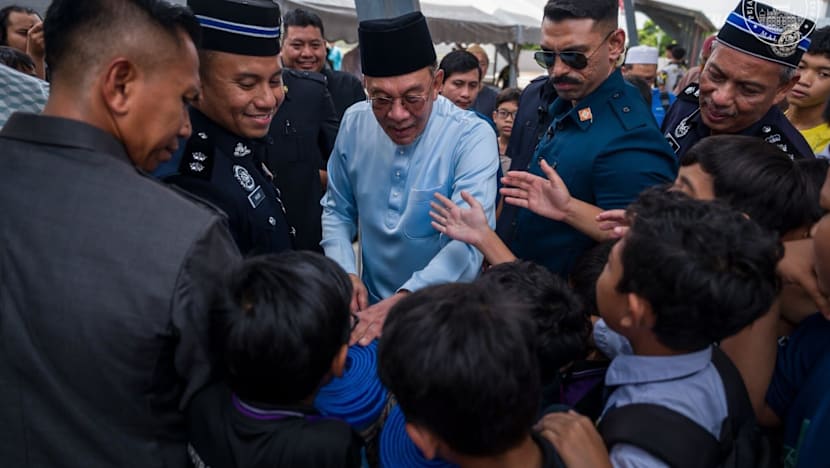
But observers have little doubts about an impending reshuffle.
“This will be his team that takes him through to the next general election, but I don’t think it will be a major reshuffle,” political analyst Sivamurugan Pandian of University Sains Malaysia (USM) told CNA.
He also said that the expected changes in the Cabinet represent a delicate political balancing act for Anwar rather than a genuine political crisis.
“The way he manages expectations and grand coalition members will matter as much as who he actually appoints,” he added.
The senatorial term of Investment, Trade and Industry Minister Tengku Zafrul Abdul Aziz expires in December while Ewon Benedick announced his resignation as the Entrepreneur and Cooperatives Development Minister on Nov 8, over what he said was a "disregard" by the country's Attorney General's Chambers (AGC) for Sabah's constitutional right to 40 per cent of federal revenue derived from the state.
In May, two ministers from Anwar's own party resigned in quick succession after losing internal Parti Keadilan Rakyat (PKR) leadership polls.
Rafizi Ramli gave up his Minister of Economy post, followed by the resignation of Nik Nazmi Nik Ahmad as Minister of Natural Resources and Environmental Sustainability.
Second Finance Minister Amir Hamzah Azizan took on Rafizi’s duties while Plantations and Commodities Minister Johari Ghani took over Nik Nazmi’s.
FOCUS ON SABAH
Political analysts said that Anwar’s immediate priority ahead of a Cabinet reshuffle is the Sabah state election, which will involve political parties working at the federal level fighting it out against one another in the Borneo state.
Sabah’s election is the first in a series of noteworthy state polls - next up are Melaka, Johor and Sarawak - between now and 2028, by when Malaysia’s 16th General Election must be held.
Analysts have previously told CNA that the Sabah election will be a test of how well the unity government partners can work together, even as their collaboration is not a given at the next general election.
Political analyst Azmi Hassan, a senior fellow at the Nusantara Academy for Strategic Research, said that reshuffling the Cabinet after the Sabah state election will allow Anwar to fully assess the resulting structure of the state government first.
“If the status quo in Sabah is maintained, the changes to the Cabinet may only be minimal,” he told CNA.
The election is likely to see multi-cornered fights that involve:
- The Gabungan Rakyat Sabah pact of Sabah-based parties which currently controls the state government and is part of Anwar’s federal government
- Anwar’s Pakatan Harapan pact made up of his PKR, alongside the Democratic Action Party (DAP) and Parti Amanah Negara
- The Barisan Nasional coalition led the United Malays National Organisation (UMNO) which is part of the federal government
- The Perikatan Nasional pact made up of Parti Islam Se-Malaysia and Bersatu, which are both opposition parties at the federal level
- Parti Warisan Sabah, led by veteran politician Shafie Apdal, a former federal minister who is currently Sabah’s Leader of the Opposition
The Sabah State Legislative Assembly has a total of 79 seats - 73 of which must be contested, with another six appointed by the governor.
Sivamurugan of USM agreed with Azmi, and said that a reshuffle would only be done after the Sabah election to avoid any uncertainty.
“The reshuffle may include new appointments and the exchange of portfolios, including ministers from Sabah,” he said.
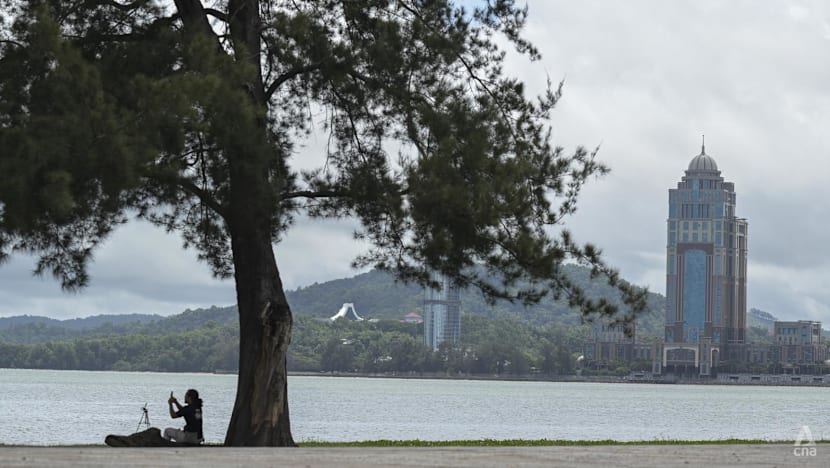
Analysts said that adding to the complexities is the withdrawal of UPKO - a Sabah-based party led by its president and former Cabinet member Ewon - from Pakatan Harapan just before the state polls.
UPKO claimed its departure was due to disputes with national component parties over the constitutional rights of Sabah, particularly the interpretation of its 40 per cent entitlement to federal revenue derived from the Borneo state.
Last month, the Kota Kinabalu High Court ruled that the Malaysian federal government had acted unlawfully by failing to fulfil Sabah's 40 per cent entitlement for nearly 50 years.
On Tuesday, Malaysia’s Attorney General Chambers said that it would not appeal the High Court’s ruling and would begin negotiations with the Sabah state government immediately.
Political commentator Zaharuddin Sani pointed to the government's decision as one example of how Anwar could use the Sabah election for maximum political leverage, saying that any federal gesture could carry extra weight.
Zaharuddin also believed there was a possibility that a deputy prime minister from Sabah could even be appointed soon.
“(This is) not as appeasement, but as strategic recognition that Malaysia's future lies in embracing its federal complexity rather than fighting it,” he said.
He added that Ewon’s resignation has placed Sabah’s representation in the Cabinet at risk and if Anwar bypasses Sabah for an appointee from Peninsular Malaysia, it could alienate East Malaysian voters and reignite calls for greater autonomy.
“Ignoring Sabah in a reshuffle would be a symbolic betrayal,” said Zaharuddin.
Sivamurugan agreed and believed that Anwar would pick someone who is from Sabah and loyal to Pakatan Harapan.
“The aim would be to signal to Sabah voters most likely after the state election that PH is moving to reaffirm its Sabah commitment. It could be someone aligned closely during the state election,” he said.
PRESSURE FROM COALITION PARTNERS
Another factor that Anwar has to take into consideration in deciding on the reshuffle is political pressure from coalition partners, said analysts.
They noted that in particular UMNO has been seen as actively lobbying to reclaim the ministerial portfolio currently held by Tengku Zafrul, who was part of the party until he quit in May and subsequently joined PKR.
“UMNO has been saying that the post is theirs, so I anticipate that Anwar will appoint someone from the party to replace Zafrul. He will have to adhere to the quota of posts given to the parties that support the government,” Azmi said, referring to UMNO’s allocation of seven Cabinet posts.
In Malaysia, a minister has to be an elected member of parliament or a senator who is appointed or elected.
A senator's term is three years, with a maximum of two consecutive terms.
As Tengku Zafrul is reaching the end of his second term on Dec 2, he will not be able to continue his ministerial appointment.
The senatorships of three senators who are also ministers — Home Minister Saifuddin Nasution Ismail, Minister of Higher Education Zambry Abdul Kadir, and Religious Affairs Minister Mohd Na'im Mokhtar — are also set to expire on Dec 2.
But as they are only completing their first term, a three-year renewal is anticipated for all three, said Azmi.
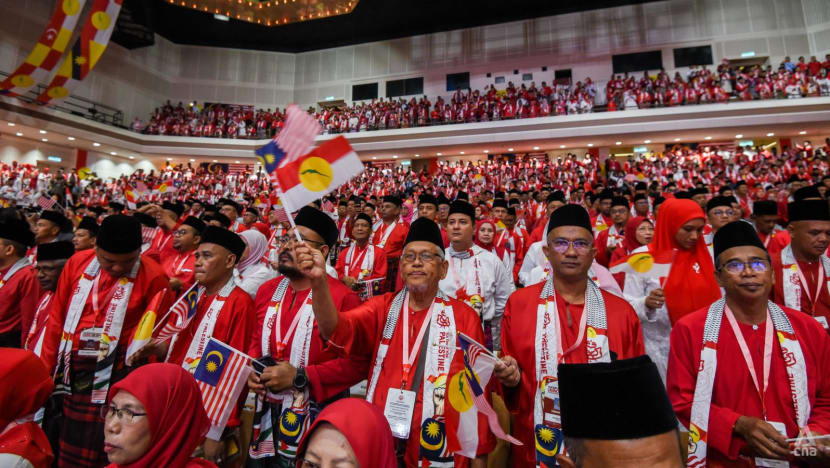
Agreeing, Sivamurugan said that Anwar would very likely retain the allocated posts to the different parties and coalition members.
There are 18 parties in the unity government that was formed after GE15 failed to produce a clear winner and resulted in a hung parliament.
“As a baseline, Anwar would fill the vacant posts with loyal but familiar faces where he keeps most ministers, and focuses on stability rather than change,” said Sivamurugan.
Sivamurugan and Azmi, however, did not discount the possibility that Anwar could pick technocrats to fill the posts vacated by the two PKR ministers in May.
This was especially so as there has been a perception that there was no one capable from the party to step up to the positions.
Anwar last conducted a Cabinet reshuffle in December 2023, a year after he first took office following the 15th general elections.
The reshuffle saw the Cabinet expanding from 28 to 31 full ministers, with five new ministers being sworn in and one being dropped altogether.
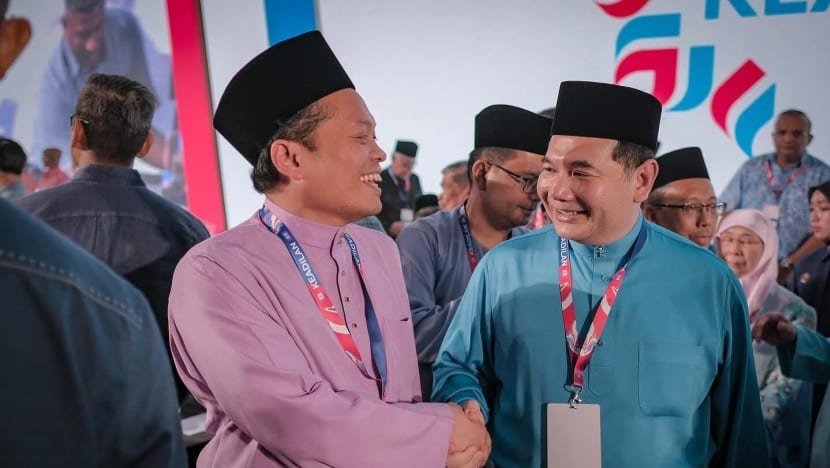
NURUL IZZAH AND KHAIRY TO GET CALL?
The rising expectations of an upcoming Cabinet shake-up have fuelled speculation over who would be brought in.
Names that have been touted include PKR deputy president Nurul Izzah Anwar and former Health Minister Khairy Jamaluddin, but both face significant political hurdles, analysts said.
Sivamurugan said that while Nurul Izzah is capable in her own right, Anwar would not want to bring his daughter into the Cabinet to avoid perceptions of nepotism.
“At this point, he wouldn’t do that because there would be accusations that it was a father-daughter Cabinet,” he said.
As for Khairy, who was expelled by UMNO in January 2023, Azmi believes that a major political barrier to his return is internal resistance within UMNO.
“I don’t think the UMNO members are supportive of him,” he said.
In January 2023, Khairy was expelled from UMNO for openly criticising the party’s top leadership during the 15th General Election campaign the year before.
Since then, the ex-UMNO Youth chief has repeatedly said he would not join any other party out of loyalty to UMNO.
Speculation of Khairy rejoining the party mounted after he had returned to the UMNO headquarters for a forum on Nov 7.
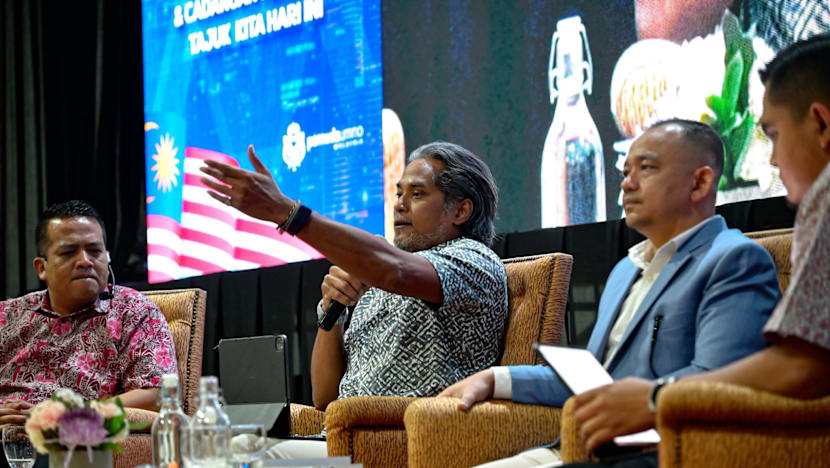
Political analyst Awang Azman Awang Pawi of Universiti Malaya also told CNA that Khairy was unlikely to be in the mix of new appointees, believing that Anwar would instead promote several deputy ministers to become full ministers.
These include Deputy Entrepreneur Development and Cooperatives Minister R Ramanan from PKR, Deputy Minister of Works Ahmad Maslan and Deputy Minister of Women, Family and Community Development Noraini Ahmad, who are both from UMNO.
The latter is also the head of UMNO’s women’s wing.
“The possibility of Ramanan being promoted as a minister is because Anwar would want to shore up his support among the Indian community while Ahmad Maslan has extensive experience, including serving as Deputy Finance Minister,” said Awang.
Former three-term DAP parliamentarian Charles Santiago told CNA that the stakes are especially high for Anwar, given that this is widely considered to be the final Cabinet reshuffle before the next national polls.
Santiago said that there was a need for Anwar to have a strong team, adding that there were some ministers who needed to be replaced.
Santiago declined to specify who they were, but said: “People have been disappointed with the government and Anwar needs a top-notch team, even if it means bringing in outsiders and technocrats. Not all ministers have to be parliamentarians.
“We are going into the fourth year of the government’s administration and ultimately towards the election period. We want to win, not because the opposition is weak, but because we are strong and competent.”




















